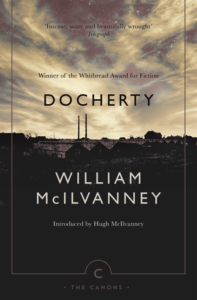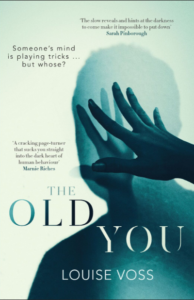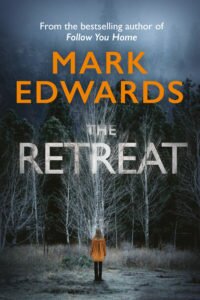I am absolutely delighted to welcome Mary Grand to Bloomin’ Brilliant Books today for this week’s instalment of Author Influences.

Which authors/books did you like to read as a child?
It was only as I started compiling a list of favourite reads as a child that I realised there is a theme running though them.
Initially there was ‘Tinker the Kitten’ by Lucienne Erville, the story of a black and white kitten that climbs over the garden wall and finds himself in a new scary world. I moved on to the “My Naughty Little Sister” stories by Dorothy Edwards, the very innocent exploits of a little girl which seemed to me very daring at the time. Finally there was of course Enid Blyton and the series I loved was called ‘The Naughtiest Girl in the School’
So I appear to have liked reading about children (and cats!) that enjoyed breaking the rules, being a bit rebellious. As an extremely conforming child I guess, like many children, I found in reading a safe way to escape the mundane, to know the thrill of going to new places and ways of living.

Were you good at English at school? Did you like it?
All through my childhood I went to the library every Saturday, firstly taken by my dad and then on the bus with my friend. I can still remember asking my dad what books I was allowed to borrow and he said ‘Anything Mary, you can read whatever you want.’ I couldn’t believe that I really could read any book I wanted!
However I didn’t really get into my stride with English in school until I went into the sixth form. Here I had the most wonderful English teacher, Miss Duffield. I remember her as being the only teacher in a large comprehensive that still had the class stand when she entered, and she would hang her Jaeger jacket on a coat hanger at the beginning of each lesson. She brought books alive to me; I loved everything she taught me from Orwell, to Chaucer, Shakespeare and Jane Austin.
What genres do you like to read? Have they had an impact on the
genre you write?
I like reading all sorts, depending on my mood. I think becoming a writer has made me more adventurous and I have been introduced to all kinds of genres by people I have met online and on courses. My main stays would be Women’s Fiction, Historical Fiction and Crime. Although I write Women’s Fiction I am sure I have been influenced by the amount of crime I have read and all my books have strong element of mystery to be solved.
If you were to write a different genre what would it be and why?
I would love to write a murder mystery one day. I love reading them and working out all the different twists and turns. I would also love to write a historical novel: I really enjoy research and escaping back in time.
Did any author’s work encourage you to pick up your pen and write?
And if so who, what and why?
I wouldn’t say it was one particular writer. However I had been reading a number of writers such as Jodi Picoult and Amanda Prowse who showed me you could write about difficult subject matter in a gripping and accessible way. In one novel, ‘Hidden Chapters’, I wrote about adoption, living with Deafness and also about addiction. The story was set in wonderful Rhossili Bay, and there are elements of romance and mystery added in. I think it makes sense to combine all these elements. Life isn’t just one thing; tragedy and heartbreak sit next to joy, wonder, and new life. There is also, of course all the stuff in between; the shopping, the picking the children up from school, it’s a rich tapestry.

Are there any authors who, as soon as they publish a new book, you have to get it?
Sarah Dunant is one of my favourite authors. She manages to combine great characters with gripping plot and seamlessly interweaves into this her extensive knowledge of renaissance Italy.
Which books have you read that have made you think ’Wow, I wish I
had written that’ and what was it about the book?
There are a quite a few books like that but I think I would plump for ‘Rebecca’ by Daphne Du Maurier. I love her development of character, plot, and her incredible skill in description and creating atmosphere. This is one of many quotes I love:
“When the leaves rustle, they sound very much like the stealthy movement of a woman in evening dress, and when they shiver suddenly, and fall, and scatter away along the ground, they might be the patter of a woman’s hurrying footsteps, and the mark in the gravel the imprint of a high-heeled shoe.”

Have any of your plots/characters been influenced by real life events/people? (Be careful, I don’t want you getting sued!)
My first novel ‘Free to Be Tegan’ is partly based on my upbringing in a religious cult. To create the main antagonist, Daniel, the cult leader, I used my own experiences of a number of teachers within my sect combined with a lot of research into the whole subject of cult leaders. One of the things that struck me was how often the fear I had known was used as a weapon of control. I also read that, like some of the people I had encountered, many cult leaders had charm and charisma I used all these elements in creating the character of Daniel. It was important to me that my protagonist Tegan not only left the cult but developed an understanding of what had happened to her. Her confrontation with Daniel is a pivotal point in her story.
Thank you for taking part, Mary. I really enjoyed reading your answers.

Mary’s latest novel ‘Behind the Smile’ is out now and available to buy HERE. Here’s what it’s about:
An emotionally charged, totally gripping story that will keep you turning the pages late into the night. Lowri is pregnant, looking forward to a new life with her lover, Simon. But her plans are shattered. She finds herself alone, her face scarred, her future uncertain. Her estranged husband, Jack, proposes they “settle” for each other, and raise Lowri’s unborn child on the Isle of Wight, in the idyllic village of Elmstone. Lowri is befriended by Carina, the beautiful Italian woman living in Elmstone Manor, and Heather, the popular local café proprietor. However, she soon discovers that no-one is the person they appear. What dark secrets is Heather hiding from her family and from the village? Why is Carina desperate for Lowri to fail in her new life and prepared to go to increasingly desperate lengths to destroy her? As she confronts her own insecurities, and faces another devastating loss, will Lowri find the courage to be proud of the person she is hiding behind the smile? Will she find true love amid the confusion and intrigue?
About Mary Grand
I was born in Cardiff and have retained a deep love for my Welsh roots. I worked as a nursery teacher in London and later taught Deaf children in Croydon and Hastings.
I now live on the beautiful Isle of Wight with my husband, where I walk my cocker spaniel Pepper and write. I have two grown up children.
‘Free to Be Tegan’ was my debut novel. The second ‘Hidden Chapters’ is set on the spectacular Gower Peninsula. I have also published two short books of short stories ‘Catching the Light’ and ‘Making Changes’. ‘Catching the Light’ is also available as an audio book, narrated by Petrina Kingham.
Facebook:
Twitter:
Amazon Author Page: https://www.amazon.co.uk/Mary-Grand/e/B00UEHEXMK
Goodreads: https://www.goodreads.com/author/dashboard
Email:
Website: marygrand.net
























